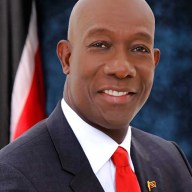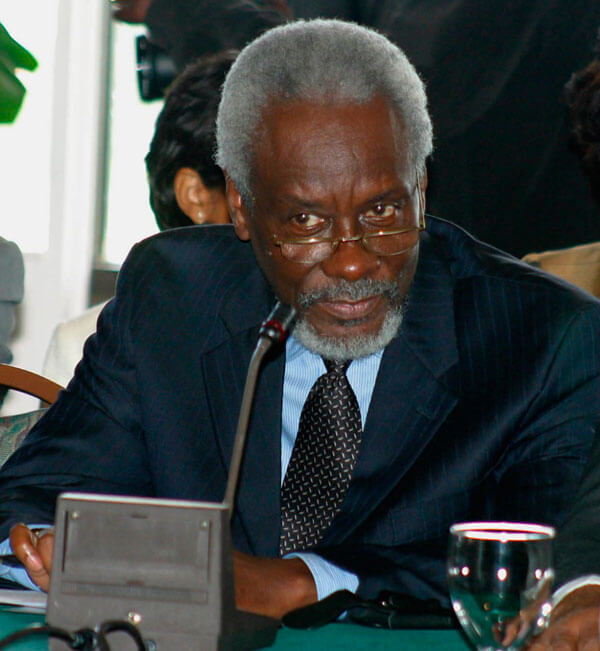Britain and the United States are not alone with indebtedness to African s transported against their will from the continent to be sold into slavery.
Although Portugal and Spain have also been maligned for inhuman exploitation of a race of people, in light of the centennial anniversary of the sale of the Virgin Islands — Saint Croix, Saint Thomas and Saint John — Denmark is now being tugged for an apology and from some, demand reparations for their cruel and inhumane treatment of Africans.
The Unity Party in Denmark’s Parliament cites Shelley Moorhead, a Crucian activists and president of the African Caribbean Reparations and Resettlement Alliance for pressing for a belated apology.
A member of parliament blamed the activist saying Moorhead “actually has been in the forefront of this,” and that “it is not only an apology (they want) … it’s also money.”
Moorhead fired back saying he had not asked for an apology.
“Nowhere in the history of ACRRA can anyone find that I or the organization has ever pursued an apology from the Kingdom of Denmark.”
“The emergence now of the debate on an apology may perhaps be inspired by the Virgin Islands Reparations Movement, but in no way is organic to the Virgin Islands and is not influenced by Virgin Islanders and, truth be told, it was originated in Denmark by interested and concerned Danes.”
While backing away from initiating an apology Moorhead went on to describe the movement Denmark has made since 2004. He also concluded that Denmark should and ultimately will apologize.
“When viewed from the vantage point of Virgin Islands leadership, we find that Denmark over the last decade of USVI reparations advocacy has in fact made many concessions. So, as much as they decry that they “won’t,” we are seeing that they will, and by the year 2017, I promise you that Denmark will apologize to the people of the U.S. Virgin Islands,” Moorhead said.
“One thing about reparatory justice is that the perpetrator doesn’t get the right to decide the terms of the judgment. So when we see Danish officials shirking their nation’s responsibility to account for the crimes against humanity perpetrated against the people of the Danish West Indies, it is only because the prosecuting entity has yet to present the evidence in its case.”
Denmark was the seventh-largest slave trade nation during the transatlantic slave trade.
The Europeans occupied those islands from 1666-1917.
During that period more than 100,000 Africans were sold into slavery to work without compensation in the then Danish West Indies.
And although controversy prevails as to whether Denmark will ever concede wrongdoings and might ever attempt to right their wrongs, some European and Caribbean nations are now recognizing the importance of reparations.
“Reparations can be defined as the acknowledgement between communities which share a common past with the aim to heal the wounds from past human rights violations.”
In 2013, the government of Denmark said it recognizes the evils of slavery in its past, but it will not issue a formal apology or pay reparations to the U.S. Virgin Islands because there are no living former Danish slave owners or slaves to apologize to.
“We cannot undo the past, but we can and we must work to ensure that no one in the world to live in slavery. … What we can, must and will do is to focus on the present and the future and work hard for no one else to live un-free, no need to live in slavery, not to be victims of trafficking,” Nick Hækkerup, Denmark’s foreign minister said.
“We deplore the fact of the persistence of human trafficking and modern slavery,” Hækkerup added. “But it is not the practice … that Danish governments apologize for past or previous governments’ policies. There are a few examples where the Danish government has apologized for past actions. Common to them is that the people concerned or immediate descendants of the people, who were still alive – and that is in fact also that, as the author puts into the comments – there is also a temporal distance,” he said.
Almost 100 years ago in 1917, the U.S. purchased the Virgin Islands from Denmark for $25 million worth of gold for reasons of military strategy.
The West Indies became ‘unincorporated territory’ under the U.S., thus ending the Caribbean colonialist adventure for Denmark.
One argument against a Danish apology is the fact, the “Virgin Islands are part of the U.S., and all diplomatic connections between Denmark and the Virgin Islands must be granted prior permission from Washington.” Some contend an apology and reparations might interfere with American national politics, particularly because the “U.S. only apologized for the slave trade in 2009, and has not since paid any compensation.”
‘Great Britain apologized to the Maoris in New Zealand and pays them compensation, Canada apologized to its original population for the way they have been treated, and the Danish Prime Minister Poul Nyrup Rasmussen apologized on behalf of the Danish state for the transfer of the population of the Greenlandic town Thule.’
After the Second World War, Germany chose to pay reparations to Israel, which was perceived as representative of all the Holocaust victims.
German heads of state have since accepted moral responsibility for the Holocaust.
In addition in 2004, Germany apologized for the genocide of the Herero-people in present-day Namibia which took place in 1904-07.
“Perhaps not now, but it is a political decision, so it may change. If the U..S one day offers Denmark the possibility of apologizing and possibly paying some form of compensation, then it may happen,” one observer added.




















